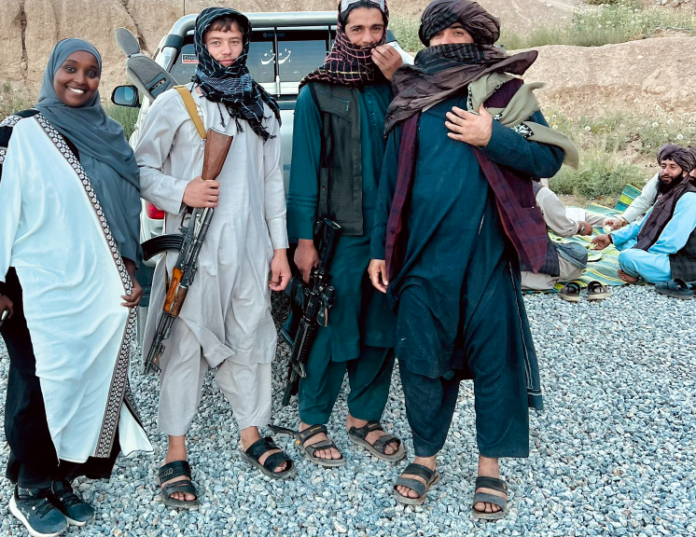Somali-American influencer Marian Abdi, widely known as Geenyada Madow, is facing significant backlash on social media following her recent visit to Afghanistan. Abdi, who shares her travel experiences as a Black Muslim woman, described her trip to the country as a “dream come true.” However, controversy erupted when she posted a photo of herself smiling next to Taliban fighters armed with AK-47s.
The photo, shared on the microblogging platform X (formerly Twitter), quickly went viral. In the caption, Abdi wrote, “Met with the Taliban,” which sparked a wave of criticism from internet users who were outraged by the seemingly casual nature of the post given the Taliban’s controversial rule in Afghanistan.
https://twitter.com/GeenyadaM/status/1825261122535965183/photo/1
Responding to the backlash, Abdi took to social media to address the criticism directly. In a series of posts, she questioned what her critics expected from her as a tourist in Afghanistan. “I’m genuinely curious – what do you want me to do? Should I avoid visiting Afghanistan altogether? How do you expect a tourist to navigate politics with the Taliban? Even if I didn’t take a photo with them, would that change anything?” she wrote.
Abdi defended her actions by highlighting the challenges of navigating complex political environments as a foreign visitor. She also noted that other content creators have visited Afghanistan without facing the same level of scrutiny, suggesting that her critics may be holding her to a different standard due to her race and gender.
https://twitter.com/GeenyadaM/status/1825261122535965183/photo/1
The situation in Afghanistan remains fraught since the Taliban seized control of the country in August 2021 following the collapse of the US-backed government. The Taliban’s return to power has been marked by widespread restrictions, particularly affecting women. The United Nations has described the current situation as “gender apartheid,” pointing to the severe limitations placed on women’s freedoms.
Recently, the Taliban imposed a set of “vice and virtue” guidelines, further restricting women’s rights. These guidelines prohibit women from speaking or showing their faces in public, singing, or reading aloud even within their homes. Additionally, women are required to avoid direct eye contact with men they are not related to, and taxi drivers are forbidden from transporting women without a male escort.



